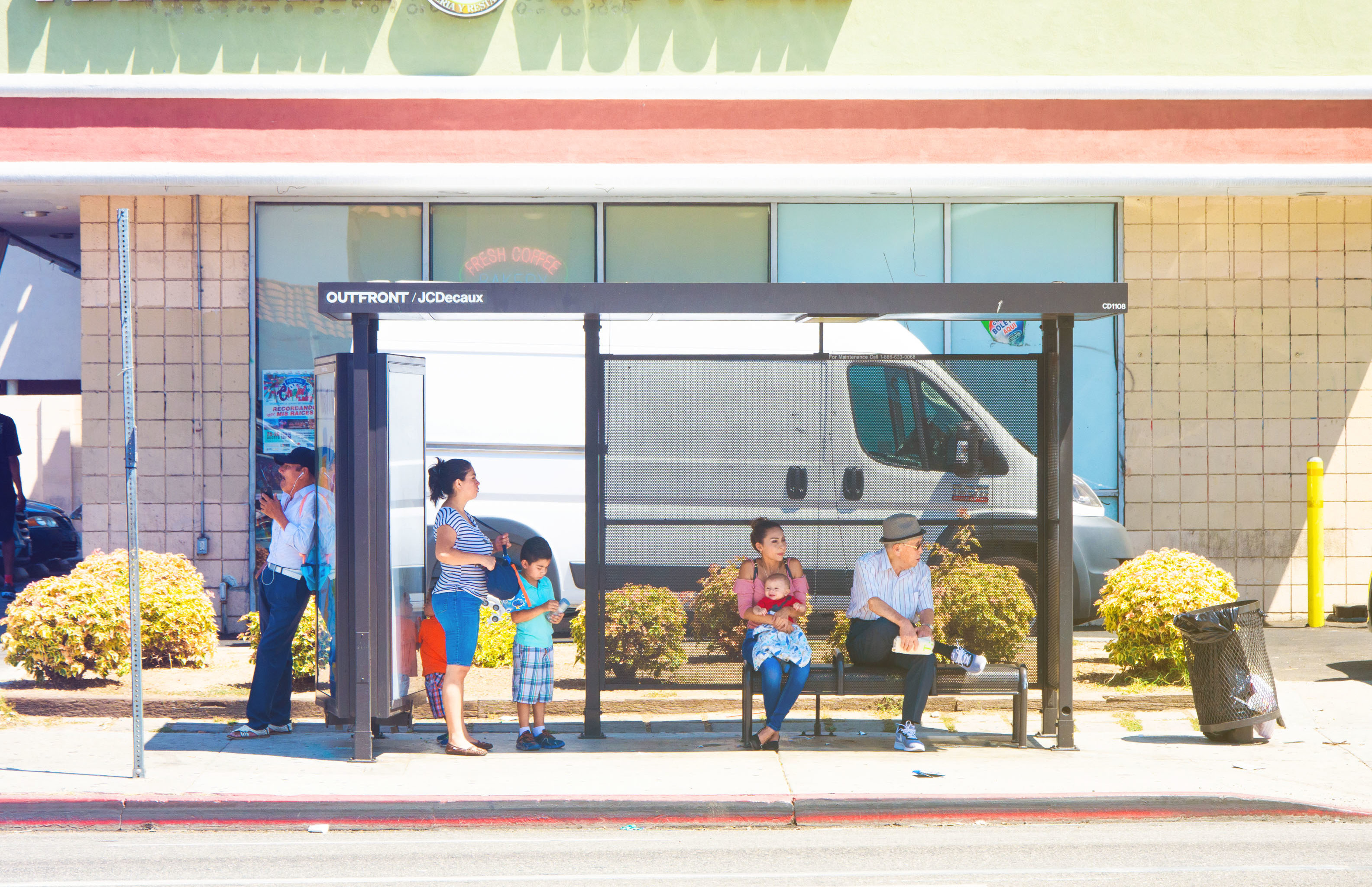
I Want To Read:
Reports are long-form research, while TransitTools are designed for quick digestion.
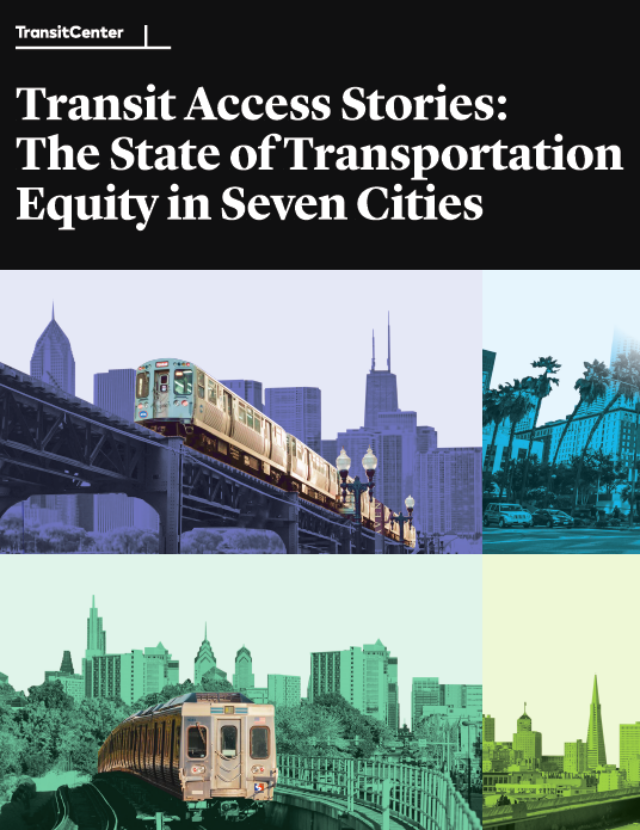 Transit Access Stories: The State of Transportation Equity in Seven Cities
Transit Access Stories: The State of Transportation Equity in Seven Cities
To create transit systems that work for everyone, transit agencies, and advocates must first understand how…
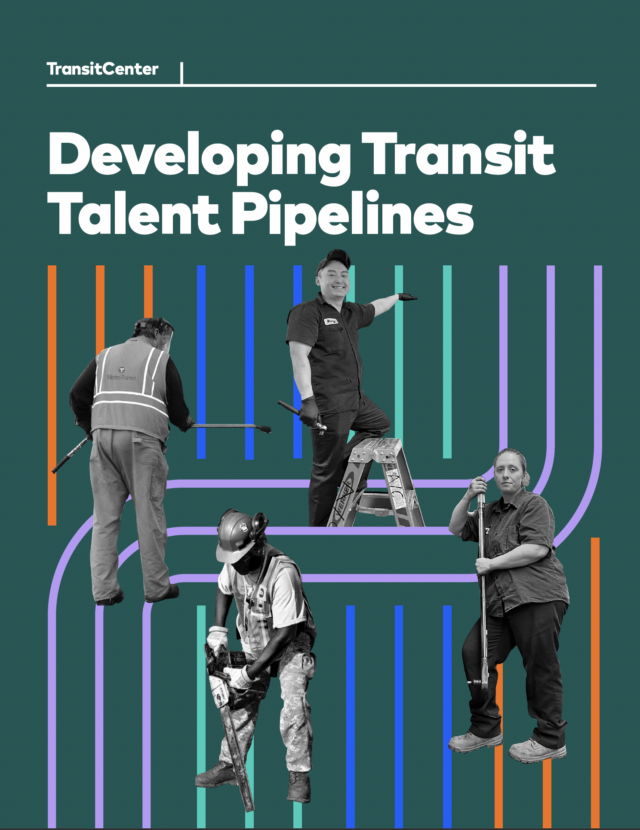 Developing Transit Talent Pipelines
Developing Transit Talent Pipelines
Our latest report examines transit workforce challenges through the lens of bus mechanics and maintenance workers, positions that are essential to helping agencies transition to zero-emissions buses and restoring pre-pandemic services.
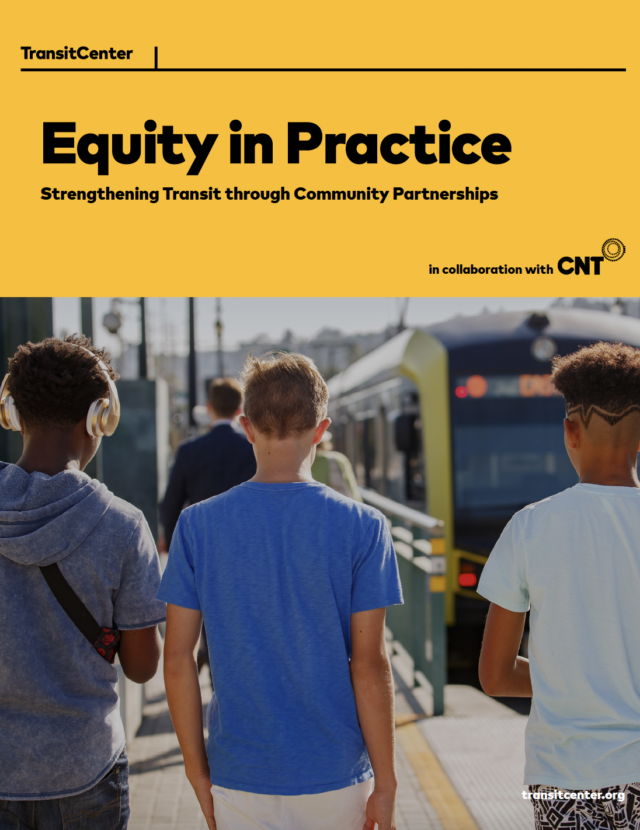 Equity in Practice: Strengthening Transit Through Community Partnerships
Equity in Practice: Strengthening Transit Through Community Partnerships
Transit agencies should continually interact with their riders and community members to ensure services meet their…
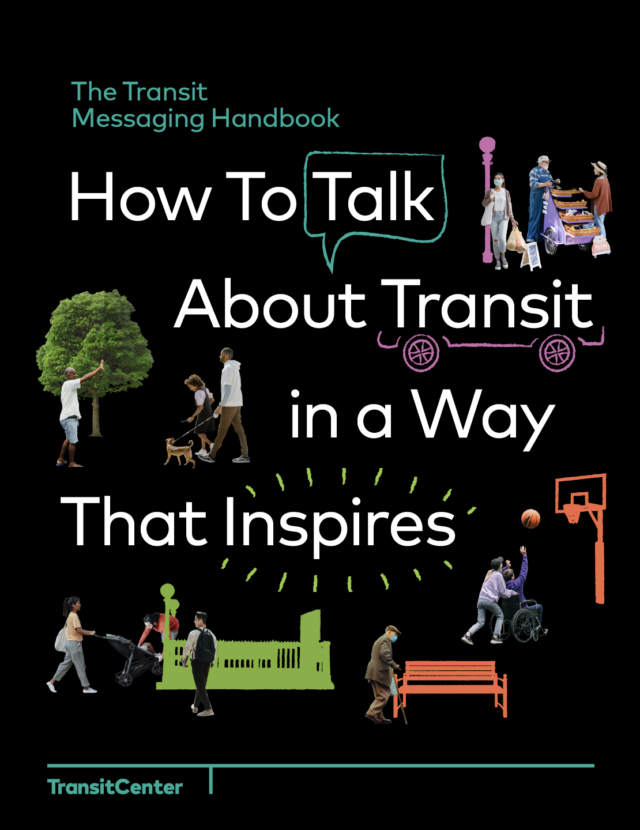 How to Talk About Transit in a Way That Inspires: The Transit Messaging Handbook
How to Talk About Transit in a Way That Inspires: The Transit Messaging Handbook
Our new transit messaging handbook is full of communications strategies to help you win the transit service your community deserves.
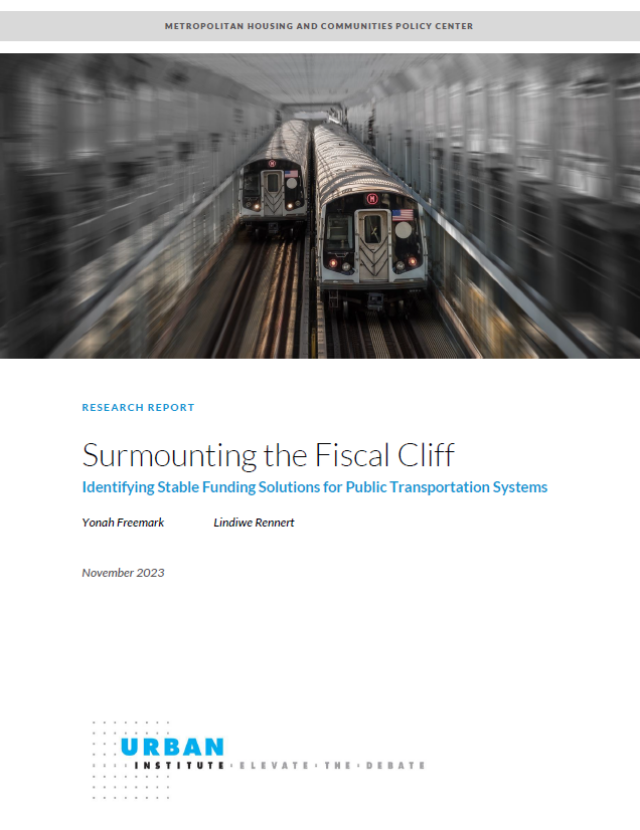 Surmounting the Fiscal Cliff: Identifying Stable Funding Solutions for Public Transportation Systems
Surmounting the Fiscal Cliff: Identifying Stable Funding Solutions for Public Transportation Systems
Urban Institute's new report seeks to understand why transit agencies—unlike many other public services—continuously face fiscal instability, and recommends funding mechanisms to disrupt this vicious cycle.
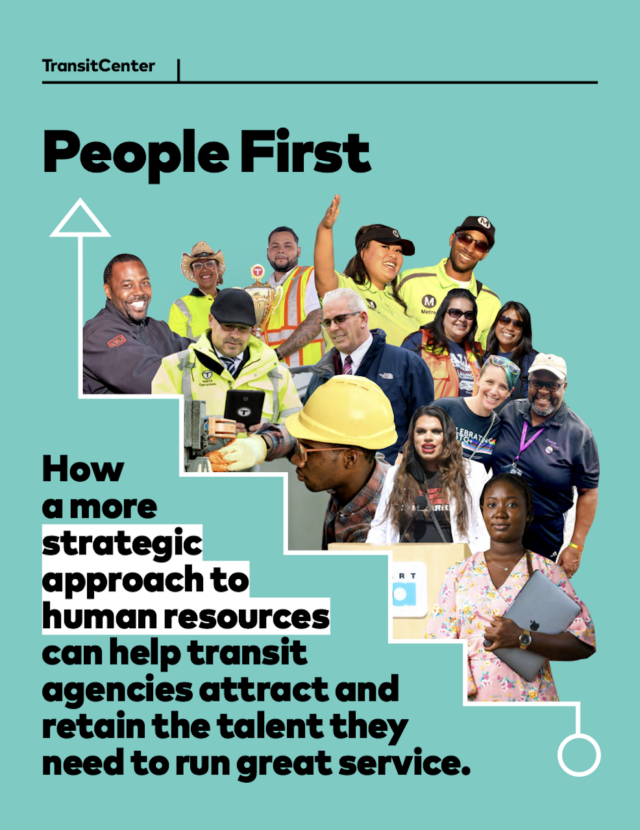 People First
People First
“People First” examines the current challenges facing public sector human resources that limit hiring and retention, and outlines potential solutions to rethink this critical agency function. To make transit agencies workplaces of the future, agencies must transform Human Resources into strategic functions that can proactively address future workforce needs, prioritize professional development and succession management, and build a positive workplace culture.
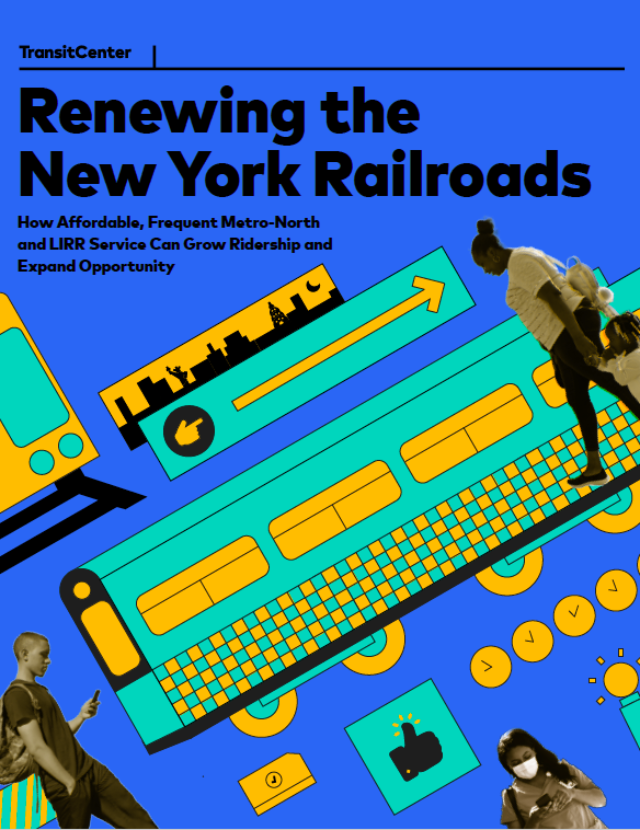 Renewing the New York Railroads
Renewing the New York Railroads
“Renewing the New York Railroads" analyzes the potential benefits of operating LIRR and Metro-North more like the subway within New York City’s boundaries, with affordable fares and more frequent service. The report reveals that the current regime of expensive fares and peak-oriented schedules on MetroNorth and LIRR is a big drag on opportunity in the NY Metro area.
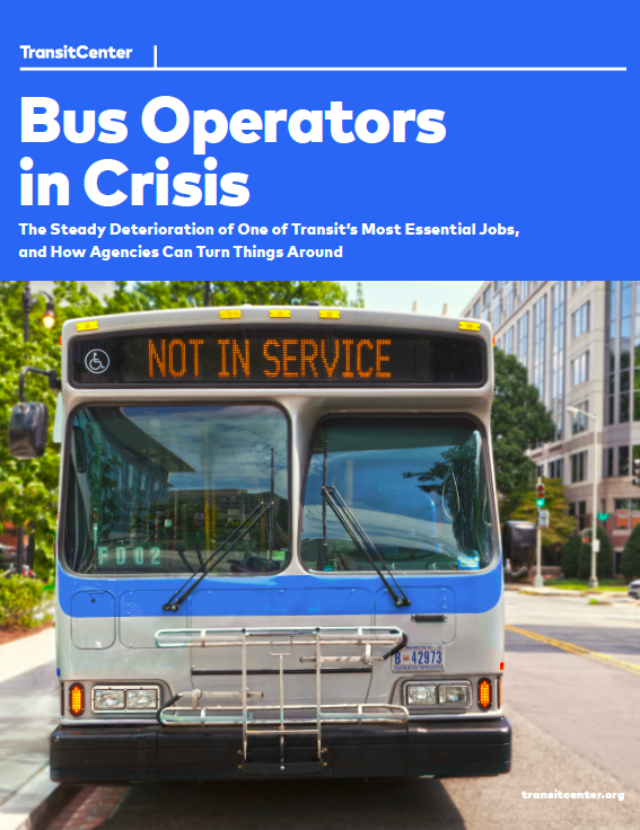 Bus Operators in Crisis
Bus Operators in Crisis
TransitCenter’s new report, “Bus Operators in Crisis,” details the challenges American operators are facing, and offers solutions that transit agencies can take to solve issues locally. It also proposes steps that state and the federal governments can take to provide agencies with necessary support.
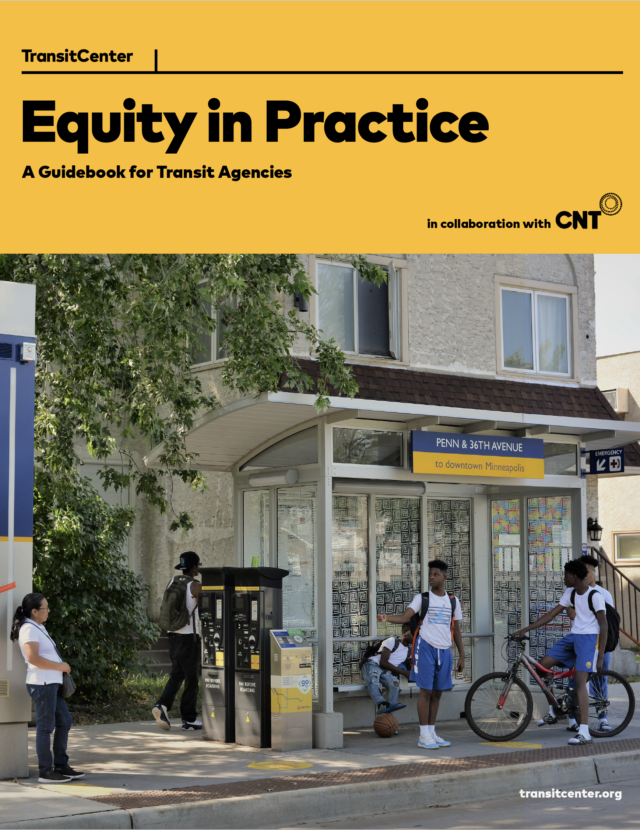 Equity in Practice: A Guidebook for Transit Agencies
Equity in Practice: A Guidebook for Transit Agencies
Transit can function as a ladder of opportunity, but it is not immune to the racism and classism embedded in American life. To address these inequities, transit agencies must look within. In this report, TransitCenter and the Center for Neighborhood Technology examine the internal structures and practices of transit agencies, and how they can be reformed to deliver better outcomes for the people with the most at stake in transit.